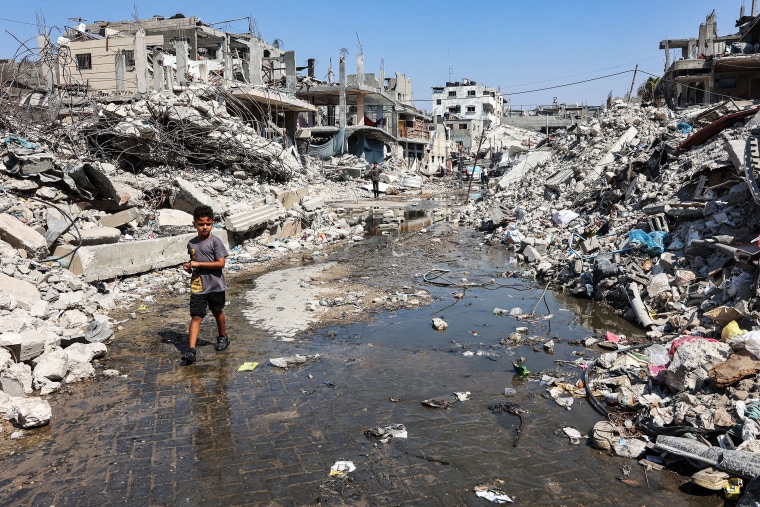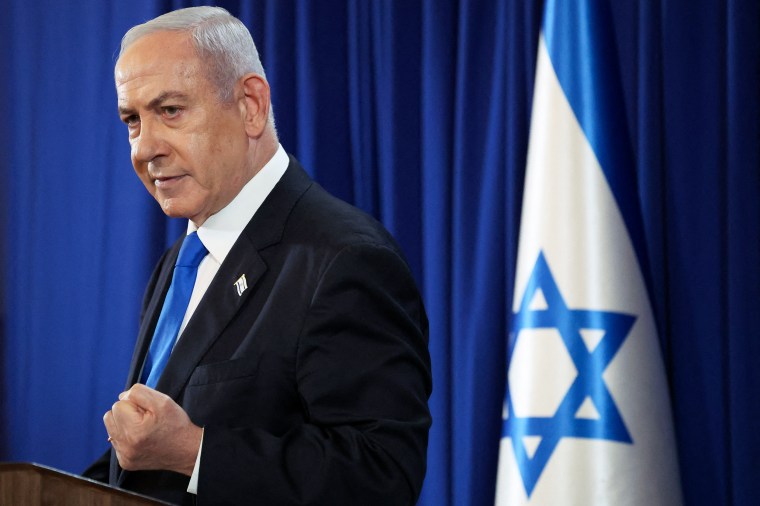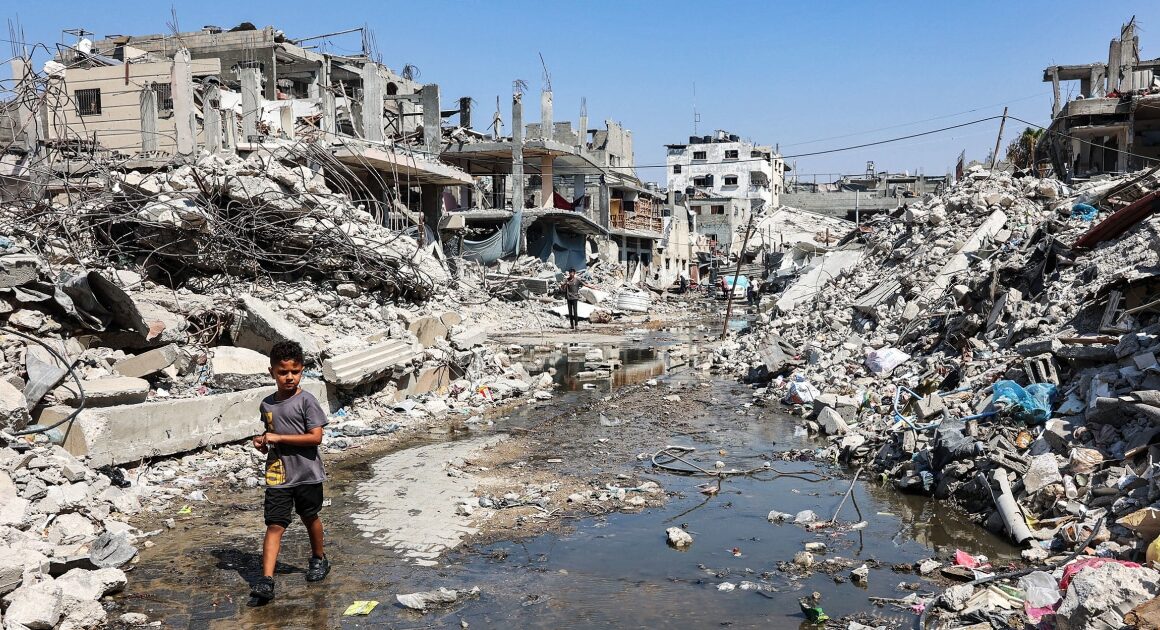High-stakes negotiations will take place Thursday as the United States hopes for a breakthrough that would not just end the war between Israel and Hamas and secure the release of hostages but avert a wider conflict across the Middle East.
Mediators from the U.S., Egypt and Qatar will meet in Doha to try to broker a cease-fire deal that has proved elusive through months of mounting devastation in the Gaza Strip as well as rising tensions between Israel and Iran.
A delegation of top officials from Israel will be in attendance in the Qatari capital, though Hamas confirmed Wednesday it will not take part — a blow to Washington’s hopes of securing an agreement that might head off a retaliatory attack by Iran.
The talks come as the death toll in Gaza passed 40,000, according to the enclave’s health ministry.

The region has been on edge since the assassination of Hamas political leader Ismail Haniyeh in Tehran and the killing of a top Hezbollah commander, both widely believed to be the work of Israel. The U.S. rushed new firepower to the area this week, but President Joe Biden suggested Iran might hold off on an attack if a Gaza truce deal can be reached.
Talks have stalled, however, since Biden announced a framework in May, with mediators spending months trying to get both sides to agree to the details of a deal having publicly agreed to the proposal in principle.
Hamas has voiced skepticism over the new round of negotiations and accused Israel of stalling by adding new demands, but said it would return to the talks if there is a “clear commitment” from the Israeli government to approve a cease-fire proposal put forward by Hamas in July.
State Department deputy spokesman Vedant Patel said Wednesday that Qatar had assured Washington that “there will be representation from Hamas.” Mediators are expected to consult with Hamas following the new round of talks, a diplomat briefed on the talks told NBC News.
The three-phase plan would see Hamas release the remaining hostages captured during its Oct. 7 terror attacks in exchange for Palestinians being held prisoner in Israel, with Israel withdrawing from Gaza.
U.S. and foreign officials have told NBC New s that Israeli Prime Minister Benjamin Netanyahu introduced new conditions that complicated negotiations surrounding the May proposal, including that Israeli forces maintain control of Gaza’s southern border with Egypt and that more restrictions be placed on Palestinians seeking to return to their homes.
,
,

,
,
The New York Times first reported on Netanyahu’s additional stipulations, citing internal Israeli government documents outlining the country’s negotiating position.
Netanyahu’s office said Tuesday that reports that Israel had added new conditions to the proposal are “false” and that a letter from him last month “does not introduce extra conditions and certainly does not contradict or undermine the May 27 proposal.”
It accused Hamas of asking for 29 changes to the proposal.
Netanyahu denied a report Thursday that he had spoken with Republican presidential candidate Donald Trump ahead of the cease-fire talks.

Top Hamas official Osama Hamdan told T he Associated Press this week that the militant group was losing faith in the United States’ ability to mediate a cease-fire and bring an end to the 10-month-old war.
A senior Biden administration official acknowledged a large amount of progress was still needed before the two sides would agree to a cease-fire.
“It’s not like the agreement is going to be ready to be signed on Thursday,” the senior administration official told reporters. “There’s still a significant amount of work to do, but we do believe that what’s left here really can be bridged, and there’s really just no time to lose.”
Speaking to NBC News in Beirut, Hamas spokesman Walid Kilaani said that Iran and Hezbollah’s possible retaliation “doesn’t have any connection” with the talks in Doha. But he suggested that if Israel offers a much better deal, Hamas would discuss it with Iran and Hezbollah — a hint at how the two could become intertwined.
Israel’s monthslong assault on the enclave has killed more than 40,000 people and injured more than 90,000, according to local health officials, while the overwhelming majority of the population has been displaced. The offensive was launched in the wake of the Oct. 7 Hamas attack, in which some 1,200 people, were killed and another 250 or so taken hostage.
The Biden administration has faced mounting domestic and international criticism over its military support for Israel, but on Tuesday announced the approval of $20 billion in new arms sales to its close ally.
However, the Pentagon said that deliveries of the fighter jets and other equipment would not begin for years.
,








